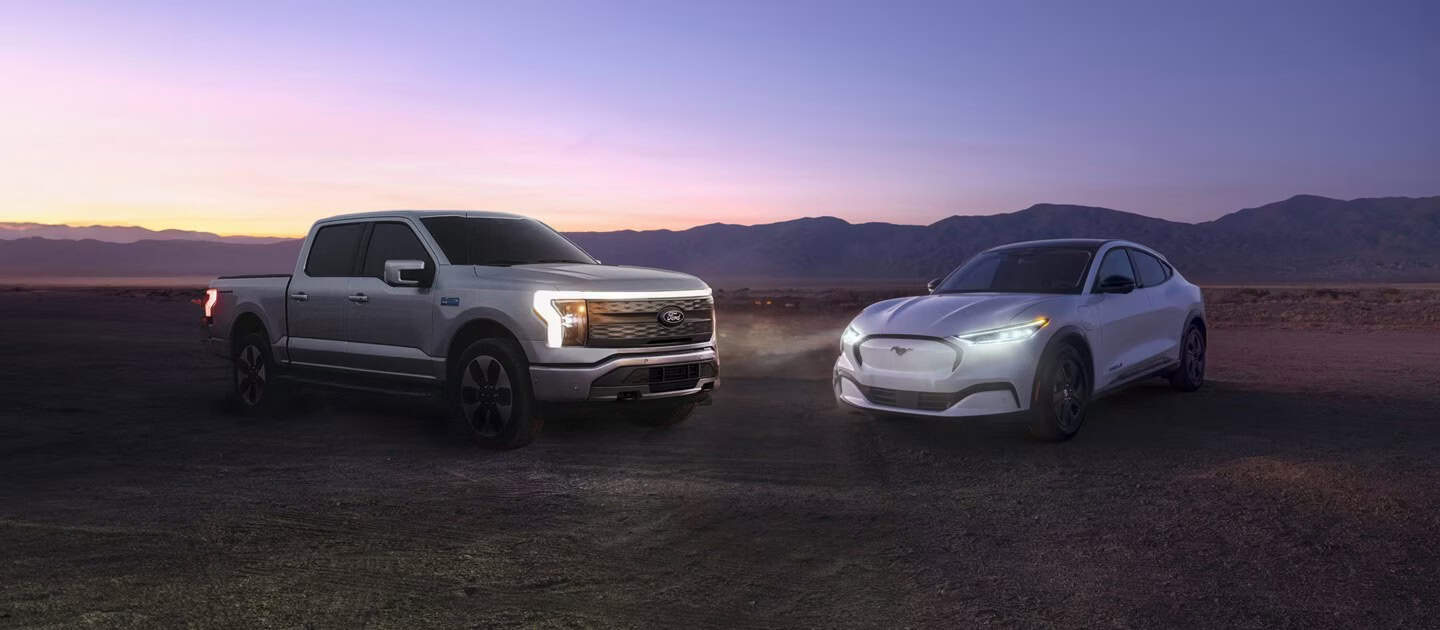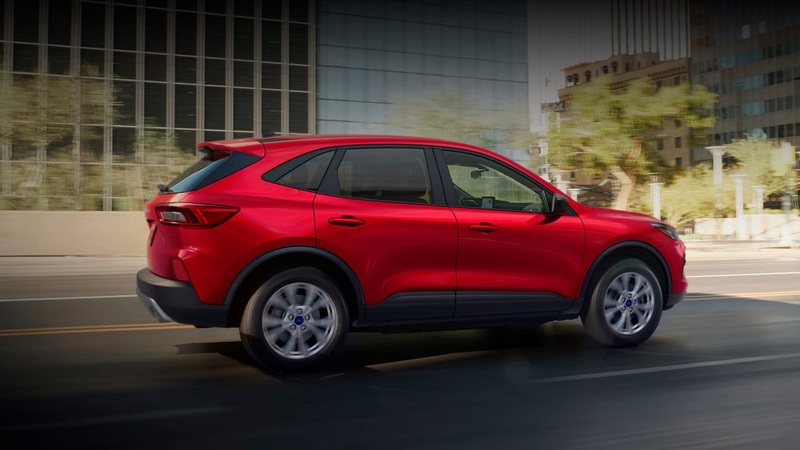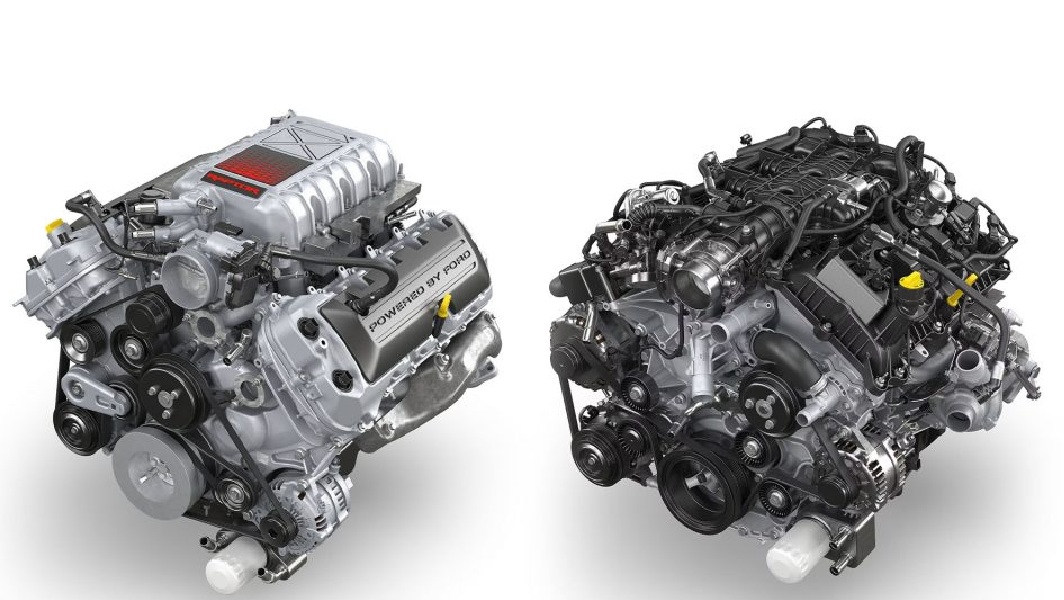As the automotive industry undergoes a seismic shift towards electrification, Ford Motor Company stands poised to survive and thrive in this new era. With over a century of experience in revolutionizing transportation, Ford is leveraging its rich heritage, innovative spirit, and strategic foresight to position itself as an electric vehicle (EV) market leader.

Strong Brand Recognition and Loyalty
The iconic blue oval logo is recognized worldwide, symbolizing reliability, innovation, and American ingenuity. This strong brand recognition provides Ford with a significant advantage as it transitions into the EV market:
- Trust Factor: Customers who have relied on Ford vehicles for generations are more likely to trust the company’s foray into EVs.
- Marketing Power: Established marketing channels and brand loyalty make it easier to promote new EV models to existing customers.
- Global Presence: With a presence in over 125 countries, Ford has the infrastructure to roll out EVs globally.
Commitment to Electrification
Ford has demonstrated a serious commitment to electrification, backed by substantial investments and clear strategic goals:
- Investment Scale: Ford has pledged to invest over 50 billion CAD in EV development by 2026.
- Model Diversity: Plans to introduce 40 new all-electric and hybrid models by 2022.
- Production Targets: Aim to have 40% of global vehicle volume to be all-electric by 2030.
This level of commitment signals to consumers and investors that Ford is all-in on the electric future.
Innovative EV Offerings
The current and upcoming Ford EV lineup showcases the company’s ability to innovate and meet diverse consumer needs:
- Mustang Mach-E: This all-electric SUV combines performance with practicality, proving Ford can successfully electrify even its most iconic brands.
- F-150 Lightning: The electric version of America’s best-selling truck demonstrates an ability to electrify vehicles in segments it already dominates.
- E-Transit: By electrifying its popular commercial van, they are tapping into the growing demand for sustainable last-mile delivery solutions.
These vehicles cater to different market segments and showcase versatility in EV design and engineering.
Manufacturing Expertise
The century-long experience in automotive manufacturing gives it a significant edge in EV production:
- Scalability: Ability to quickly scale up EV production using existing facilities and supply chains.
- Quality Control: Established quality control processes that can be adapted to EV production.
- Cost Efficiency: Expertise in lean manufacturing principles to keep production costs competitive.
Strategic Partnerships and Collaborations
Ford has forged strategic partnerships to accelerate its EV development and production:
- Volkswagen Collaboration: Sharing EV platforms and technologies to reduce development costs and time-to-market.
- Solid Power Partnership: Investing in solid-state battery technology for next-generation EVs.
- Charging Network Alliances: Collaborating with charging infrastructure providers to ensure a seamless charging experience for customers.
These partnerships allow Ford to leverage external expertise while focusing on its core competencies.
Focus on Battery Technology and Range
Ford is making significant strides in battery technology, addressing one of the primary concerns of potential EV buyers:
- Range Improvements: The Mustang Mach-E offers a range of up to 490 km on a single charge, competitive with market leaders.
- Battery Production: Plans to establish a battery development center in Michigan, investing over 250 million CAD.
- Recycling Initiatives: Partnering with Redwood Materials to create a closed-loop battery recycling program.
By focusing on battery technology, Ford is working to eliminate range anxiety and make EVs more accessible to the mass market.
Commitment to Charging Infrastructure
Recognizing that charging infrastructure is crucial for EV adoption, Ford is taking proactive steps:
- FordPass Charging Network: Providing access to over 16,000 charging stations in North America.
- Home Charging Solutions: Offering easy-to-install home charging options for customers.
- Workplace Charging: Partnering with businesses to install charging stations at workplaces.
These initiatives help address the “chicken and egg” problem of EV adoption and charging infrastructure.
Data and Connectivity
Ford is harnessing the power of data and connectivity to enhance the EV ownership experience:
- Over-the-Air Updates: Ability to improve vehicle performance and add features remotely.
- FordPass App: Allowing users to monitor charging, pre-condition their vehicle, and locate charging stations.
- Usage Analytics: Collecting data to improve future EV designs and tailor services to customer needs.
This focus on connectivity positions Ford EVs as not just vehicles but as part of a broader mobility ecosystem.
Sustainability Beyond the Vehicle
A commitment to sustainability extends beyond just producing EVs:
- Carbon Neutrality Goal: Aiming to be carbon neutral by 2050.
- Sustainable Manufacturing: Investing in renewable energy for manufacturing facilities.
- Recycled Materials: Increasing the use of recycled and sustainable materials in vehicle production.
This holistic approach to sustainability resonates with environmentally conscious consumers and investors.
Government Relations and Policy Advocacy
The long-standing relationships with governments and policymakers provide advantages for EV transition:
- Incentive Programs: Ability to navigate and leverage government incentives for EV production and sales.
- Regulatory Compliance: Experience in adapting to and shaping automotive regulations.
- Public-Private Partnerships: Collaborating with governments on EV infrastructure projects.
These relationships help Ford navigate the complex regulatory landscape of the automotive industry.
Financial Strength and Investor Confidence
Financial stability provides the foundation for its ambitious EV plans:
- Strong Balance Sheet: With over 40 billion CAD in cash and marketable securities as of 2024.
- Investor Support: Stock price has shown resilience as the company pivots to EVs.
- Revenue Diversification: Balancing traditional vehicle sales with growing EV and mobility service revenues.
This financial strength allows Ford to weather the transition period and invest heavily in EV technology.
Workforce Development and Talent Acquisition
Ford is actively preparing its workforce for the EV future:
- Retraining Programs: Investing in programs to retrain existing employees for EV production and maintenance.
- Tech Talent Recruitment: Attracting software engineers and battery specialists to bolster EV development teams.
- University Partnerships: Collaborating with universities to develop curricula focused on EV technologies.
By investing in its workforce, Ford ensures it has the talent needed to compete in the high-tech EV market.
Customer-Centric Approach
A focus on customer needs and preferences in EV development sets it apart:
- Market Research: Conducting extensive research to understand customer concerns and desires regarding EVs.
- Customization Options: Offering a range of customization options to cater to diverse customer preferences.
- Education Initiatives: Providing resources to educate customers about EV ownership and benefits.
This customer-centric approach helps Ford design EVs that truly meet market demands.
Adaptive Business Model
Ford is adapting its business model to thrive in the EV era:
- Direct Sales Model: Exploring direct-to-consumer sales options for EVs.
- Subscription Services: Piloting EV subscription services for flexible ownership options.
- Energy Services: Investigating vehicle-to-grid technologies to provide energy services to utilities.
These adaptations position Ford to capture new revenue streams in the evolving automotive landscape.
Ford is a Leader in Electric Vehicles
As the automotive industry accelerates towards an electric future, Ford stands out as a company well-positioned to succeed. By leveraging its strong brand, committing substantial resources to EV development, forging strategic partnerships, and adapting its business model, Ford is transforming itself for the electric age.
The company’s holistic approach—addressing everything from vehicle design and battery technology to charging infrastructure and sustainability—demonstrates a deep understanding of the challenges and opportunities presented by the shift to EVs.
While the road ahead may have its challenges, the combination of heritage, innovation, and strategic foresight provides a solid foundation for success in the world of electric vehicles. As it continues to execute its electrification strategy, Ford is not just adapting to change—it’s driving it, ensuring its place as a leader in the automotive industry for generations to come.



